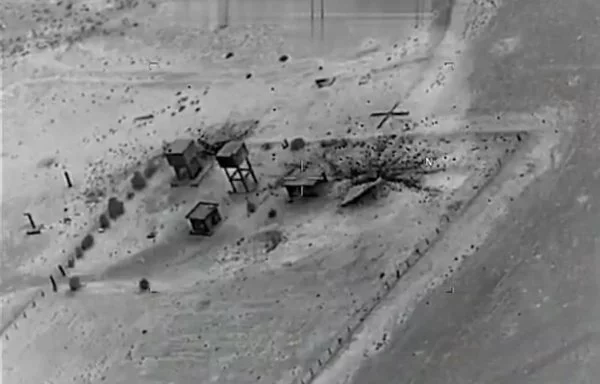Security
French strikes targeting ISIS in Syria support regional stability
Preemptive strikes on ISIS positions intend to ensure the group does not take advantage of the leadership changes in Syria to reemerge.
![A French Rafale fighter takes off from the Charles de Gaulle aircraft carrier in the Mediterranean Sea on December 9, 2016. [Stephane de Sakutin/POOL/AFP]](/gc1/images/2025/01/22/48836-French-fighter-jet-600_384.webp)
By Nohad Topalian |
BEIRUT -- With its recent strikes on "Islamic State of Iraq and Syria" (ISIS) positions in Syria, France has signaled it intends to prevent the group from taking advantage of changes in Syria to reemerge, experts said.
France's Rafale fighter jets and US-made Reaper drones "dropped a total of seven bombs on two military targets belonging to ISIS in central Syria" the defence ministry told AFP December 31.
French forces joined the US-led international coalition's effort to defeat ISIS in 2014, with troops based in the United Arab Emirates and elsewhere in the region.
"Our armed forces remain engaged in battling terrorism in the Levant," defense minister Sebastien Lecornu wrote on X following the strikes.

ISIS still has a presence in the Syrian desert between Palmyra and Deir Ezzor, military expert and retired Lebanese military officer Khalil al-Helou told Al-Fassel.
"ISIS is trying to regain its strength in its areas of influence, at a time when Tahrir al-Sham is reshaping Syria after toppling the regime of Bashar al-Assad."
"The French strikes against ISIS were preemptive, to avoid destabilizing Syria," he said, and also to avoid extending the destabilization into Iraq and Lebanon.
ISIS is "besieged in the desert without economic or financial resources, and is unable to recruit loyalists," al-Helou said.
Continuing pressure from the Syrian Democratic Forces, and international coalition members such as France, the United States and Türkiye ensures "there is no fear of ISIS expanding its presence in Syria to regain its strength," he said.
Protecting Syria, Iraq, Lebanon
Syria "has not yet stabilized, and some problems remain," including the ongoing issue of ISIS, said Lebanese university professor Fadi al-Ahmar, who specializes in geopolitics.
ISIS no longer has a military force and its leadership, structure and cells are in disarray, but its ideology is still present, he told Al-Fassel.
"The group is located in a desert area devoid of economic activity or large residential areas, so its activity is very limited," he said.
"It cannot, in the event of its siege by international coalition and Syrian Democratic Forces, benefit from the situation of the new Syria to rebuild its military strength and expand."
While ISIS is somewhat active in Syria and Iraq, "the international coalition is on the lookout for it, and has renewed its strikes through the French air force," al-Ahmar said.
"The French and coalition strikes are in the context of confronting extremism and terrorism, and protecting Syria, Iraq and Lebanon from new extremism that would take them back decades."